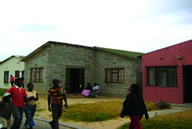
|
STRATEGY These regional efforts should be tried in a range of cultures and climates to maximize mutual learning, to be viewed as a credible global effort, to guard against isolated failures or successes, and to replicate proven results. A hybrid public-private organization must be created to develop and implement regional-level strategies for sustainable development. This partnership must act as an honest broker, business incubator and supplier of seed capital, and become a deal-maker between local government, business, and citizen's groups. The interests of local-national governments, citizens, industry, finance, and technical teams must be linked in a practical fashion. This is needed to improve the quality of information, to provide a trusted neutral forum to get consensus on action, and to ensure support for management and implementation. Regional sustainable development strategies would include phased investments, political organizing, technical backup, supporting organization, and finance, etc., in sufficient detail so the strategy can be implemented in the short-medium term. While solutions will be site-specific, the regions would work together to develop a greater consensus on several issues: |
|||
|
|
|||
|
|||
Regional activities will be linked, when useful, with on-going programs,
such as local environment plans, development bank or Global Environment Facility projects, relevant private sector investments, World Bank and UN agency efforts, and initiatives of private foundations. |
|||
When we are far more confident of what constitutes sustainable development, when we can show what really stimulates it, when we have demonstrated clearly what can (and cannot) be done at the regional level without requiring difficult policy changes, then the role of national and international policy issues will be clarified, and support for them strengthened. E-Systems' work at the regional level begins by understanding resource flows, as shown on the next page. |
|||
